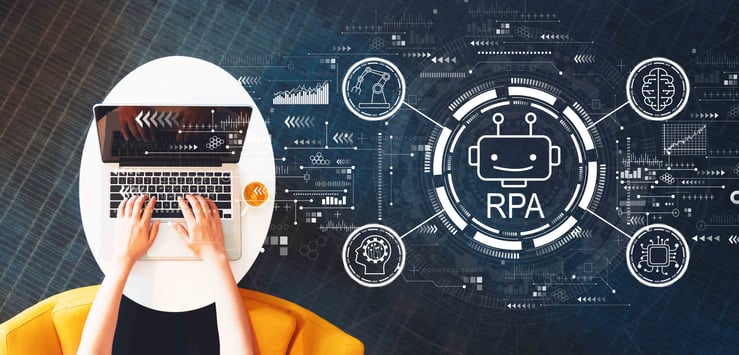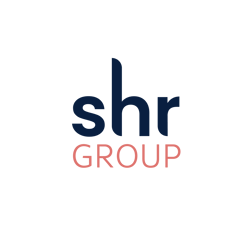
By Yannis Anastasakis, VP of Solutions & Partners
The hospitality industry is entering a new age of automation allowing operators to refocus their efforts away from costly minutia of repetitive actions, and back on to guests – as long as they can find a way to integrate the necessary systems to do so. Operators have spent recent years attempting to maintain high-quality guest experiences, despite limited available labor and rising consumer expectations, all while keeping pace with the rapid development of new technology. These pressures are leading many hoteliers to rethink their approach to daily operations.
The answer for many of these hotels can be found in automation. Many operators have already embraced technologies capable of automating several functions, such as check-in and check-out, a process that was accelerated in the rush to create a contactless experience.
More recently, others have begun to investigate the potential of Robotic Process Automation (RPA) to leverage untapped software and hardware capabilities better manage labor costs and improve operational efficiency.
While the benefits of automation are reasonably clear to hoteliers, the capabilities in question can feel out of reach, especially in markets charged with uncertainty. The next generation of automation in travel is here, and in order for hotels to fully embrace it, they must align themselves with a technology partner who is capable of configuring the desired logic and managing the necessary integrations across a hotel’s technological ecosystem.
Connecting the Dots
Once upon a time, in the early days of the internet, hoteliers received emails from guests filled with booking information which would then be manually entered into their systems. At the time this activity seemed normal, but today’s operators obviously view it as archaic. Innovations in RPA and other forms of automation will eventually lead operators to feel the same way about our current methods of running hotels. In the most significant ways, we are already there.
In theory, providing guests with high-quality experiences has never been easier than today, thanks to the abundance of information hotels can gain from a variety of sources, not least of which is the guest’s actual booking! However, in practice today’s hotels do not have technology in alignment, and in a way that can accurately and automatically react to a guest’s booking, preferences, and other existing data points. On top of this, these same hotels are often too understaffed to react to these bookings within meaningful time frames.
The practical application of the promise of technology often faces its strongest challenges when ‘connecting the dots’. For example, if a traveler books a stay at a golf resort and has purchased spa or golf packages in the past, what is stopping a hotel from recognizing the guest, and automatically wrapping spa and golf offerings into one package, then automatically delivering it to the guest alongside their confirmation email, or at an opportune time soon thereafter? If a hotel’s Central Reservations System (CRS) and Customer Relationship Management (CRM) system are capable of sharing information, hotels can consolidate all of these elements into a unified process, resulting in elegant efficiencies for both guests and operators.
We know that combining the capabilities of a hotel’s CRS and CRM, offers hotels a greater capacity to understand guest preferences, market to them, and deliver the stay experience that best fits their wants and needs.
Once integrated, and with the application of a touch of robotic automation, these systems can really push the barriers of what is done today. In our example, they could automatically identify your hotel’s highest-value guests, present new ways to entice them to stay at your hotel, and even present you with an opportunity to completely rethink cancelations through well-timed and ultra-personalized promotions, that speak directly to customers’ needs and specific situations. RPA is allowing hotels to ensure guests are greeted with the correct amenities or services during check-in, respond quickly to room availability inquiries, automatically manage check-in and check-out, handle selling and consumption of vouchers, market directly to guests, set room prices, and so much more; all without hoteliers’ direct input each moment. The greatest barrier to offering these capabilities is finding a technology partner who is capable of taking individual hotel technologies and breaking them out of self-imposed isolation, synthesizing individual functionalities into something that blurs the lines between multiple and single systems – making them work as one.
Asking Tough Questions
Innovations in automation and operations software have led to a disruption within the hotel industry’s traditional approach to technology. Many of these tools have been naturally separated into departmental silos, given their isolated task-centric and feature-specific nature. Finding ways to bring these walls down will remain a focus for hoteliers in the near future, and should be a priority when speaking with technology partners, all within the framework of a continuing shift away from developing new in-house technology solutions.
While in the past automation seemed like a ‘nice to have’, today we see it as having established itself as a necessity and opportunity for creating competitive advantages and offering genuinely better experiences to guests, sometimes before they have even arrived at the hotel. Acquiring these capabilities is not out of reach! If hoteliers are able to clearly identify their operations and revenue goals, they will find there are many ways to implement automation to help alleviate any inefficiencies. Once these are addressed, they can refocus their efforts on the guest experience, rather than on repetitive tasks that can be managed automatically.
Hoteliers must ask themselves what they could and should do better. After they identify areas for improvement, they should take a close look at their existing and other available technology partners to understand whether or not they provide the necessary quality of integrations to achieve their goals. How do potential technology partners approach the process of integrating new tools and new technologies? What level of support do they provide to hoteliers, and in what form? Additionally, consider the ways they have implemented automation in their properties, and identify how (or if) they continue to refine these capabilities over time.
The end goal for hospitality technology is to make hoteliers’ jobs more manageable and to enable them to refocus on improving the guest experience. Achieving this state today requires a comprehensive technology strategy that includes a focus on sharing information across all hotel departments. Once these digital handshakes are set to take place automatically, operators can be liberated and empowered to do what they do best.


